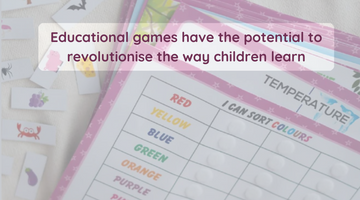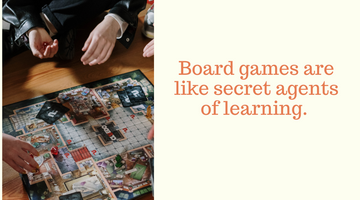Educational games have become increasingly prevalent in kids' education, revolutionising traditional learning approaches. These games leverage interactive technology and captivating gameplay to enhance engagement, facilitate skill development, and foster a love for learning. There is a huge role of educational games for kids' education, examining their impact on cognitive abilities, subject knowledge, and overall academic growth.
Educational games play a vital role in kids' education, promoting engagement, skill development, personalised learning, and real-world application. Educational games can range from puzzles to flashcards. By harnessing the power of interactive technology and gamified approaches, educational games have the potential to revolutionise the way children learn, fostering a lifelong love for learning and facilitating their overall academic growth.
1. Engagement and Motivation -
Educational games captivate kids' attention by offering an immersive and enjoyable learning experience. By incorporating game elements like challenges, rewards, and progression, these games tap into children's innate motivation, driving them to actively participate and invest effort in their learning. The interactive nature of educational games keeps children engaged, sustaining their focus and enthusiasm throughout the educational journey.
2. Skill Development -
Educational games provide a platform for holistic skill development in children. They promote cognitive abilities such as critical thinking, problem-solving, and decision-making by presenting challenges and puzzles within the game environment. Additionally, these games foster creativity, communication, collaboration, and teamwork through multiplayer features, empowering children with vital social and interpersonal skills. Moreover, subject-specific educational games enhance knowledge acquisition and retention by presenting information in a visually appealing and interactive manner.
3. Personalised Learning -
One of the significant advantages of educational games is their ability to cater to individual learning needs. Many games offer adaptive features that adapt the difficulty level based on a child's performance, ensuring an appropriate level of challenge and support. This personalised approach allows children to progress at their own pace, reinforcing their strengths and addressing their weaknesses. Educational games also provide immediate feedback, allowing children to monitor their progress, identify areas for improvement, and actively engage in self-assessment.
Checkout our blog - A Teacher's Guide to 10 Must-Have Educational Toys for 4-Year-Olds
4. Real-World Application -
Educational games bridge the gap between theoretical knowledge and practical application by simulating real-world scenarios. They provide opportunities for children to apply their learning in authentic contexts, making the educational content more relevant and meaningful. For example, simulations and virtual environments in science or social studies games allow children to experiment, explore, and gain a deeper understanding of complex concepts. By experiencing the practical implications of their knowledge, children develop a stronger connection between theory and real-life situations.
5. Supplementing Traditional Instruction -
Educational games complement traditional instructional methods by offering an interactive and engaging learning tool. They provide an additional avenue for children to reinforce and apply what they learn in the classroom. Educational games can be used as supplementary resources, homework assignments, or interactive activities in the classroom. When integrated strategically with traditional instruction, educational games enhance comprehension, retention, and transfer of knowledge, leading to a more well-rounded and comprehensive educational experience for children.
Educational games play a vital role in kids' education, promoting engagement, skill development, personalised learning, and real-world application. By harnessing the power of interactive technology and gamified approaches, educational games have the potential to revolutionise the way children learn, fostering a lifelong love for learning and facilitating their overall academic growth.






